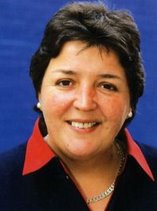

Well it seems the UK "Therapy Wars" have broken out at last and the Band of Therapy Brothers has lit the battle torches :
Press Release 17th April 2009
THERAPISTS REFUSE THE GOVERNMENT'S PLANS FOR THEM
At a packed meeting in London on April 5th, the newly formed Alliance for Psychotherapy and Counselling took the next steps in its campaign against the Government's plans for the regulation of psychotherapy and counselling via the Health Professions Council. The Alliance is an umbrella organisation for qualified psychotherapists and counsellors from all traditions to develop their case that therapy work is not a 'health profession'.
Addressing the meeting, Professor Brian Thorne said: 'No convincing proof exists that state regulation protects clients from abuse. Therapy is not a medical or usually a medically associated activity and regulation by the Health Professions Council consequently makes little sense. The uniqueness both of persons and relationships indicates the inappropriateness of a state regulatory process which must inevitably encourage uniformity and militate against creativity of practice.'
Already, over 2,000 qualified psychotherapists and counsellors have signed a petition calling for a
rethink by the Government. A Coalition Against Over-Regulation of Psychotherapy has launched its own petition, supported by well-known artists, writers and intellectuals, which has also called for the abandonment of what many now see as a misguided policy on the part of the Government.
Speaking for the Coalition, Professor Darian Leader said:
'All the major psychotherapy and counselling organisations rejected HPC as regulator when it was proposed two years ago. HPC is designed for healthcare delivery in a business framework and not for the relationship based practice of psychotherapy. It is also unable to deal with the complexity of complaints in this field.' One of the main psychotherapy organisations - the United Kingdom Council for Psychotherapy - has made it clear that it will continue to register psychotherapists who, as matter of principle, do not sign up to the HPC's register. HPC itself also recognises that its register will be far from comprehensive and that there will be many legal loopholes.
Calling for a campaign of Principled Non-Compliance, Professor Andrew Samuels said: 'All psychotherapists and counsellors concerned about the Government's proposals should announce publicly that they will refuse to register with the HPC and remain in membership of one of the existing - and good enough - psychotherapy organisations to which all therapists belong'. Samuels went on: 'All such organisations have well-developed codes of ethics and conduct bringing with them disciplinary procedures including withdrawal of recognition or publicly announced expulsion from the organisation ("striking off") as a last resort'.
It is very important for the public and media to understand that the Alliance in no way supports
anyone working outside of a code of ethics and conduct without accountability. Therapists are not so irresponsible and it is insulting to suggest otherwise.
We feel that the approach taken to these matters by the HPC is going to prove disastrous. Many complaints against psychotherapists and counsellors are not about clear cut matters such as sexual or financial exploitation, or false claims to qualification. All therapists agree that exploitation and deception are utterly unacceptable, though, regrettably, the extent of such abuse has never been properly researched. Sadly, as all agree, no system - not the HPC's nor the ones already in existence - will deal with the problem of the 'bad apple'.We have seen this in the experience of the medical profession.
Because of the nature of this work, many complaints are best resolved via conciliation, negotiation and, where appropriate, apology and a change of approach on the part of the therapist. However, true to its understanding of a 'health profession', the HPC's approach to ethics and discipline is bureaucratic, adversarial, utterly devoid of the emphasis on conciliation, mediation and mutual understanding that characterizes the best contemporary approaches
to ethics and discipline in the therapy field. In this, and in other ways, far from raising standards,
the HPC has embarked on lowering them.
Those psychotherapy and counselling organisations who support the HPC process know this perfectly well but remain silent for fear of jeopardizing the advantages and benefits that will accrue from compliance. So, whatever the stated intention to protect the public, the HPC register will only benefit those therapists who sign up to it.
Following the launch of the Alliance's campaign, the number of HPC 'refuseniks' is going to be substantial. We call on the Government to convene a conference of all the parties and organise a poll of the professions concerned.We are dismayed at the flat refusal of the HPC even to discuss such a poll.
For more information contact: Denis Postle 020 8995 6181 denis@postle.net
Professor Darian Leader 07952 520 540 darianleader@hotmail.com
Janet Low 020 8244 4549; 07780 697160 janet.low@mac.com
Professor Andrew Samuels 020 7272 1292; 07768 662813 andrew@andrewsamuels.net
Released on 17th April 2009
2 of 2
http://www/allianceforcandp.org


.jpg)







No comments:
Post a Comment